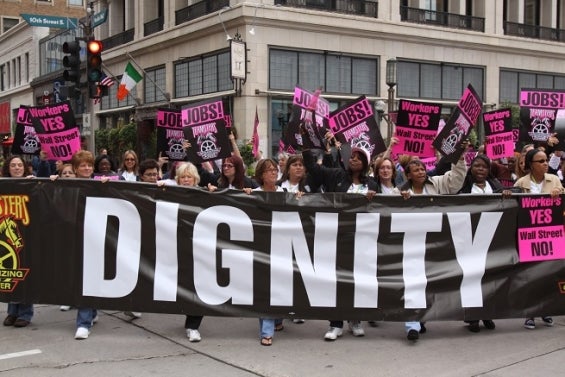Uncategorized
Bipartisan Support for Paid Parental Leave Means it’s Time to Act

There isn’t much that the two major party presidential candidates have been able to agree on in this election. But one policy item has gotten both of their attention – paid parental leave.
Sure, the plan offered by Hillary Clinton covers both genders and is much more generous. But the fact that Donald Trump decided to roll a proposal out at all in what has been a policy-light campaign by him shows politicians of all persuasions recognize there is an unmet need when it comes to the issue.
The U.S. is the only industrialized country that does not require employers to offer paid leave to women after they give birth. While more and more companies such as Facebook, Etsy and Hilton are now offering such benefits to their workers, those in low-income jobs are often left behind.
As the U.S. Department of Labor noted last year, only five percent of workers among the lowest paid 25 percent have access to such leave, compared with 22 percent of workers among the highest 25 percent. These disparities in benefits between low and high earners mean that inequality in total compensation (that is, wages plus benefits) is even greater than inequality in wages alone.
Meanwhile, a report released earlier this year by the National Partnership for Women & Families found few states have expanded on the federal Family and Medical Leave Act (FMLA). The document actually gives 27 states a grade of “D” or “F” when it comes to support they provide new parents in the workplace. Only one state, California, earned an “A”.
The Teamsters recognize the need to expand paid parental leave. At its 29th International Convention last June, the union approved a resolution stating “women will never be fully equal in the workplace until we normalize pregnancy and family care work, prioritize work/life balance and provide subsequent support and accommodation.”
Given the broad-based support for such benefits, Congress must prioritize passage of paid parental leave next year so workers are guaranteed a basic level of fairness and dignity.